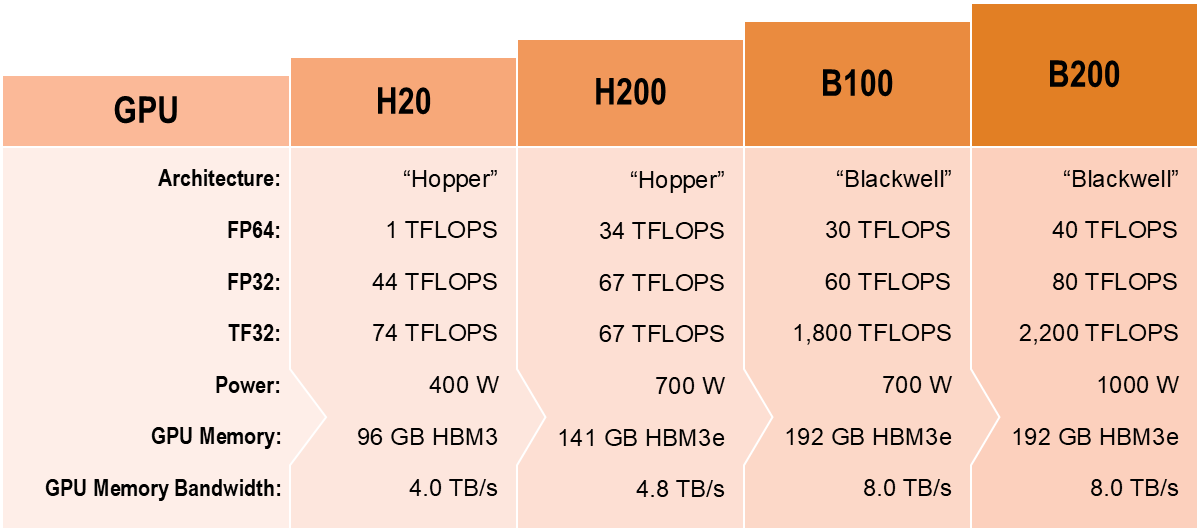
Letting US Companies Sell Second-Tier Chips to China Is the Right Move
The U.S. government rightly reversed course this past week by announcing that it would allow Nvidia and AMD to resume sales of their H20 and MI308 chips to China. Both chips were designed to comply with U.S. export controls. Blocking them would have punished leading U.S. companies for following the rules and created openings for Chinese competitors to gain ground in the global AI race.
However, not all policymakers supported the decision. Most of the criticism has focused exclusively on Nvidia, despite the change also applying to AMD. This selective scrutiny suggests that some critics may not fully understand the technical and market landscape—or may simply be singling out the most prominent player due to broader skepticism toward large tech companies. For example, Sen. Elizabeth Warren (D-MA) condemned the move, stating, “It is shameful that even as American companies, small businesses, and universities wait months, if not years, to acquire chips for developing artificial intelligence, Nvidia and the Trump Administration are prioritizing sending these chips to the People’s Republic of China.”
But her criticism misrepresents the facts. U.S. companies are not waiting in line for H20 chips. These chips offer far lower performance than Nvidia’s top-tier GPUs—such as the B100 and B200, as well as its older H200, all of which remain restricted. As shown in figure 1, the H20 lags significantly in all key AI performance benchmarks—memory capacity, bandwidth, data throughput, and FP64/FP32/TF32 performance. (FP64, FP32, and TF32 refer to different levels of numerical precision used in computing. Higher performance in these formats allows chips to train and run AI models more quickly and accurately.) The H20 only has a market in China because buyers there lack access to more advanced options.

Other critics, like Rep. Raja Krishnamoorthi (D-IL), claimed Nvidia developed the H20 to “circumvent” U.S. rules. But that’s an inaccurate and unfair characterization. Nvidia designed the chip to comply with U.S. export control rules. Penalizing companies for adhering to U.S. law—by rewriting the rules after the fact—sends a dangerous message and undermines business certainty. If policymakers believe current rules are insufficient, the proper response is to update them, not punish firms that followed them in good faith.
Rep. John Moolenaar (R-MI), chair of the House Select Committee on China, opposed the decision on strategic grounds, warning that it would “provide a substantial increase to China’s AI development.” He argued, “We can’t let the CCP use American chips to train AI models that will power its military, censor its people, and undercut American innovation.” But blocking sales of the H20 chip is unlikely to change China’s AI trajectory.
Despite trailing in chip manufacturing, China is not facing a shortage of computing power. Recent estimates find that Chinese data centers are using only about 30 percent of their available compute capacity. Denying access to lower-tier U.S. chips like the H20 may raise costs for China at the margins, but it will not stop its AI ambitions—especially as Chinese firms accelerate efforts to build domestic alternatives. Meanwhile, restricting these sales weakens U.S. firms that play a central role in the global AI ecosystem.
Allowing H20 exports supports U.S. innovation. For example, Nvidia expects to earn $15 billion in revenue from China in the second half of 2025. These earnings fund American R&D that will power the next generation of U.S. chips. Every dollar spent on Nvidia chips is a dollar not spent on a Chinese rival like Huawei. Restricting exports does not just hurt U.S. firms—it weakens America’s edge in AI and semiconductors and risks handing market share to foreign competitors. More broadly, overly broad export controls risk long-term strategic losses by pushing Chinese firms away from the U.S. AI ecosystem and encouraging the development and adoption of alternatives.
The Trump administration should maintain export controls where they clearly advance national security. But it should also ensure that U.S. companies can compete globally, reinvest in innovation, and remain central to the technologies that will shape the future.
Related
December 18, 2025

